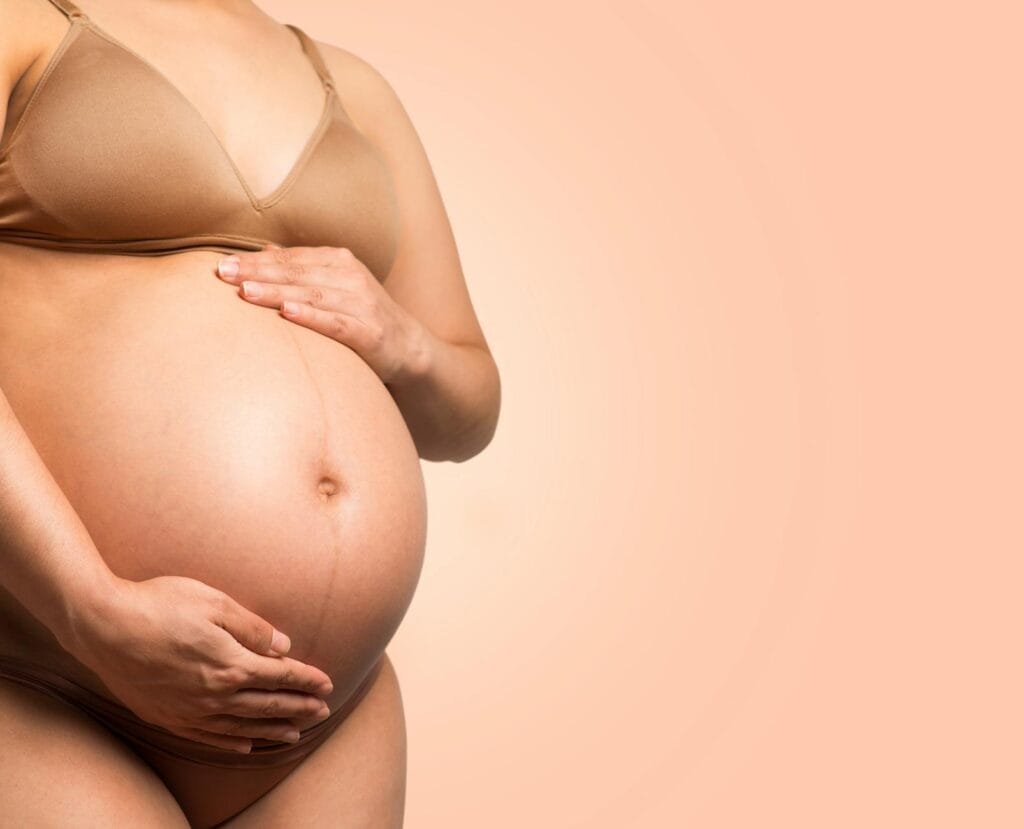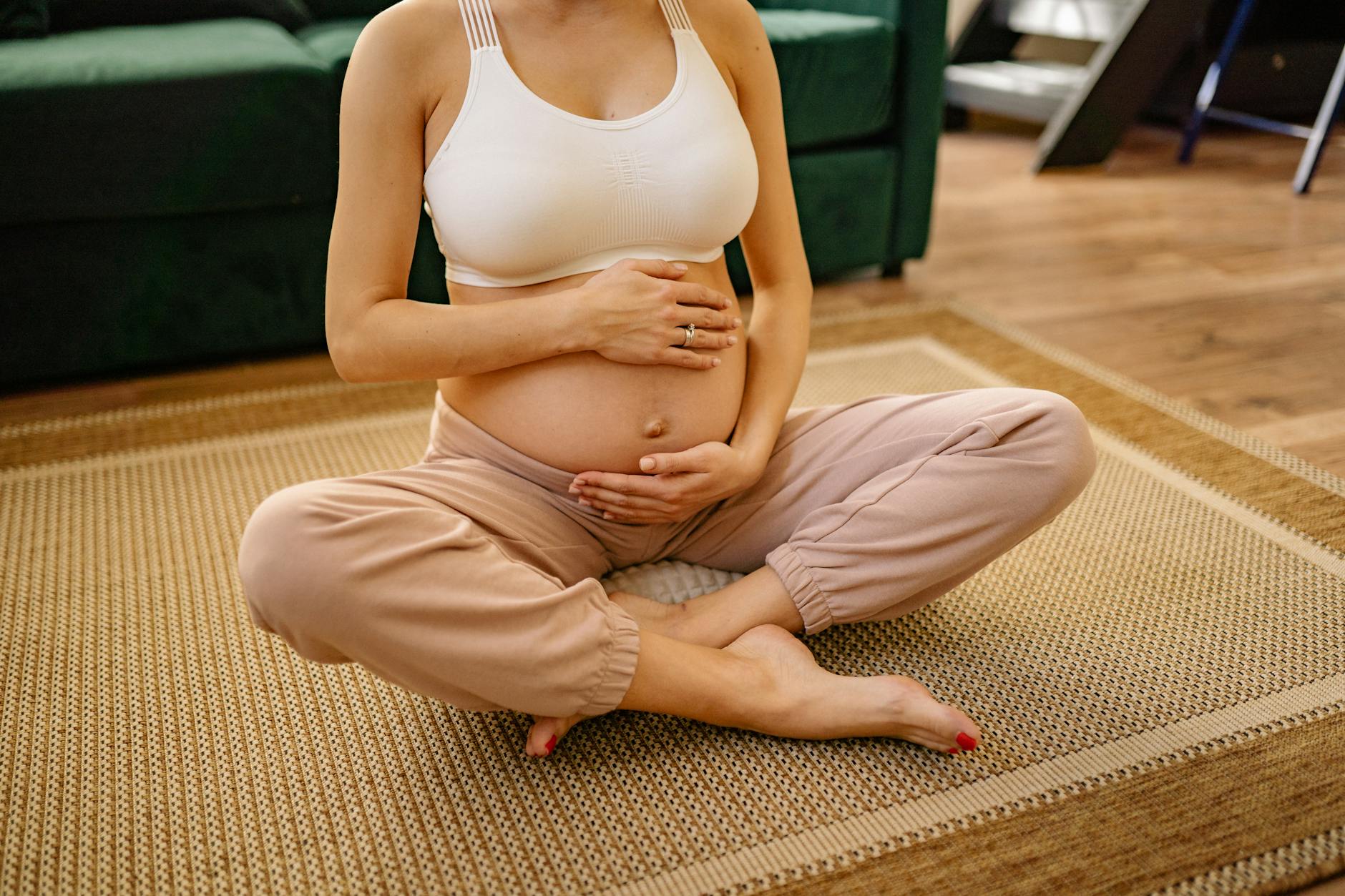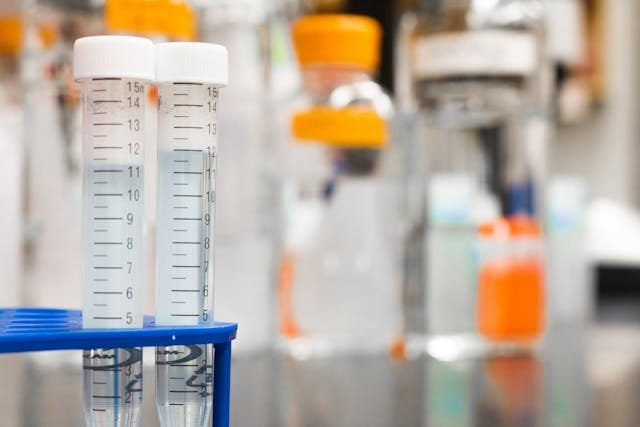Can You Get Pregnant on Your Period? [2024 Guide]
Table of Contents
Can you get pregnant on your period? It’s a puzzling question that leaves many confused. Menstrual cycles and fertility can be tricky topics, carrying various myths that need to be cleared up.
The simple answer is: yes, you can. Understanding this involves knowing a bit more about ovulation, sperm lifespan, and cycle variations. Our bodies don’t always follow strict rules, and ovulation can sometimes overlap with menstrual bleeding.
In this post, we’ll explore how cycle irregularities and hormonal changes can increase the chance of pregnancy during your period. By the end, you’ll have a clearer picture of how your cycle works and what it means for your fertility.
The Menstrual Cycle Explained
Understanding how the menstrual cycle works is essential, whether you’re looking to get pregnant or avoid it. The menstrual cycle is a complex process regulated by hormones, and it plays a major role in a woman’s reproductive health.
Phases of the Menstrual Cycle
The menstrual cycle has four main phases: menstrual, follicular, ovulation, and luteal. Each phase has its own role and typical duration.

Photo by Laker
- Follicular Phase: This phase starts on the first day of your period and continues until ovulation. During this phase, the body produces hormones that stimulate the ovaries to form follicles, eventually leading to the release of an egg.
- Ovulation: Typically occurring around the midpoint of the cycle, ovulation is when a mature egg is released from the ovary. This usually happens between days 12 and 16 in a 28-day cycle.
- Luteal Phase: After ovulation, the luteal phase begins. The body produces progesterone, which helps thicken the uterine lining to prepare for a potential pregnancy.
- Menstruation: If the egg isn’t fertilized, hormone levels drop, causing the uterine lining to shed. This marks the start of a new cycle.
For detailed information about the menstrual cycle, you can check Menstrual Cycle: An Overview from Johns Hopkins Medicine.
Getting Pregnant On Your Period: Understanding The Fertile Window
Knowing your fertile window is key if you’re asking “Can you get pregnant on your period?”
The fertile window is typically about 6 days long and includes an ovulation day and the five days before it. Ovulation usually happens around the midpoint of the cycle. This is the period when a woman is most fertile. However, some research also suggests that getting pregnant is generally highest between the 8th and 13th day of the menstrual cycle.21
So, for some women conception can be one to two days before ovulation. This means if your menstrual cycle is short, the fertile window could overlap with your period. 3
How to Identify the Fertile Window
- Track Your Cycle: Most women ovulate around day 14 of a 28-day cycle, but this can vary. However, only around 30% of women ovulate between days 10 and 17 of their cycle, leaving a fluctuating window for the remaining 70%. 4
- Monitor Symptoms: Look for signs like changes in cervical mucus, which becomes clearer and stretchier.
Research studies have found that women who used the cervical mucus method to identify their fertile window had a 97% accuracy rate in detecting ovulation.5
The kegg® Tech Cervical Mucus Tracker device predicts your fertility window through monitoring cervical mucus patterns through a digital fertility tracker and kegel ball.
- Use Ovulation Predictor Kits (OPK’s): These are ovulation tests that help you pinpoint ovulation by measuring the levels of the luteinizing hormone (LH) in your urine, which increases just before ovulation. The Clear Blue Ovulation Kit has over 99% accurate at detecting the LH surge just before ovulation. Read more about ovulation tests here!
- Fertility Apps: Fertility apps can help you keep track, such as the Flo App and Natural Cycles Apps. These are great tools that will help you to keep on track of your menstrual cycle.

Factors Influencing Fertility During Your Period
Several factors can sway the chances of conception during your period:
- Sperm Lifespan: Sperm can live inside the female reproductive system for up to five days. Therefore, if you have intercourse during your period, there’s a chance the sperm could still be viable when you ovulate.
- Cycle Irregularities: If you have an irregular menstrual cycle, pinpointing the fertile days becomes more challenging. Thus, irregular cycles could lead to unexpected ovulation times (Healthline).
- Short Period Cycles: For women with shorter cycles, ovulation can occur soon after the period ends. This can make the fertile window overlap with menstruation day. Therefore, sperm lifespan, combined with ovulation occurring soon after menstruation, can create a narrow window for fertilization. https://kidshealth.org/en/teens/sex-during-period.html
- Individual Variations: Hormonal fluctuations and individual biological differences mean that no two women have the same cycle. These differences can affect when ovulation occurs and how long sperm survive (Shady Grove Fertility).
Armed with this knowledge, you can make well-informed decisions about your reproductive health.
Here’s a brief overview on how these factors could play out:
- Sperm Lifespan and Fertility:
- Sperm: Up to 5 days
- Fertile window shifts
- Irregular Cycles:
- Harder to predict ovulation
- Might overlap with menstruation
- Individual Variations:
- Unique cycles
- Varied ovulation days
How To Not Get Pregnant On Your Period
Now that we’ve covered how you can possibly get pregnant on your period. It’s important that we now cover the safety measures for how not to get pregnant on your period, particularly if you wish to avoid pregnancy. Let’s take a look at the measures:
- Consider Birth Control: Using contraceptives or birth control methods can help mitigate any risk.
- Track Your Cycle: Apps and other tools can help track ovulation cycles and menstruation days. This can give better insights into your fertile windows.
- Consult Healthcare Providers: Speaking with a healthcare provider like a gynecologist can offer personalized insights and advice.
For more details, consider reading Health.com’s insights on this matter to grasp deeper into pregnancy possibilities during different menstrual phases.

Understanding the full scope of the menstrual cycle and the delicate timing of the fertile window is essential for understanding how you can possibly get pregnant on your period. While getting pregnant during your period is less likely, it’s not impossible. Paying attention to your cycle, educating yourself about your body’s functions, and consulting reliable resources can empower you in making confident decisions.
Explore our latest posts:
- Seed Cycling: A Natural Approach to Hormonal Balance
- The Best Traditional Chinese Medicine For Fertility
- 11 Ways I Reduced My Period Pain with Natural Remedies
- 9 Surprising Habits Making Your Period Worse
- Boost Your Fertility with Magnesium: What You Need to Know
- https://www.medicalnewstoday.com/articles/324829 ↩︎
- https://www.ncbi.nlm.nih.gov/pmc/articles/PMC5469003/ ↩︎
- ↩︎
- FN: Fehring, R. J., Schneider, M., & Raviele, K. (2006). Variability in the Phases of the Menstrual Cycle. Journal of Obstetric, Gynecologic & Neonatal Nursing, 35(3), 376-384. ↩︎








One Comment
Comments are closed.